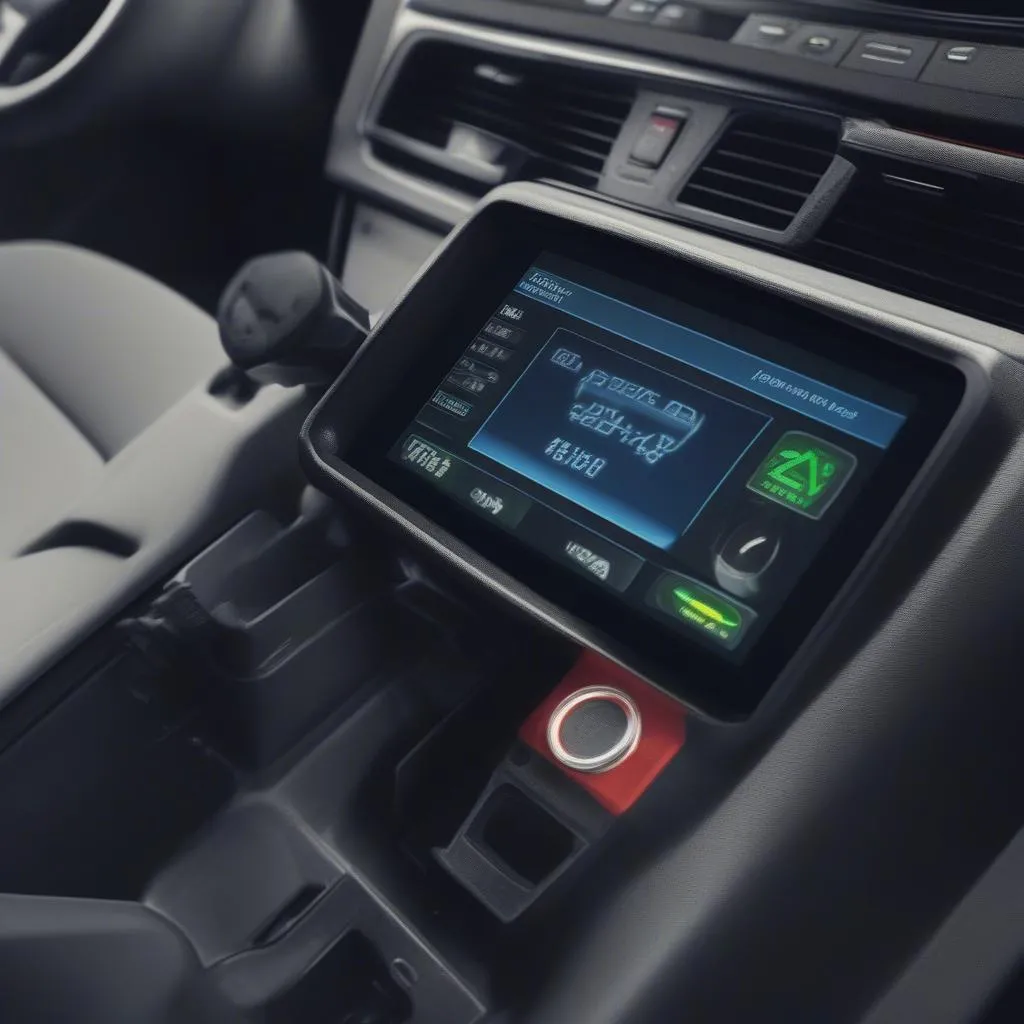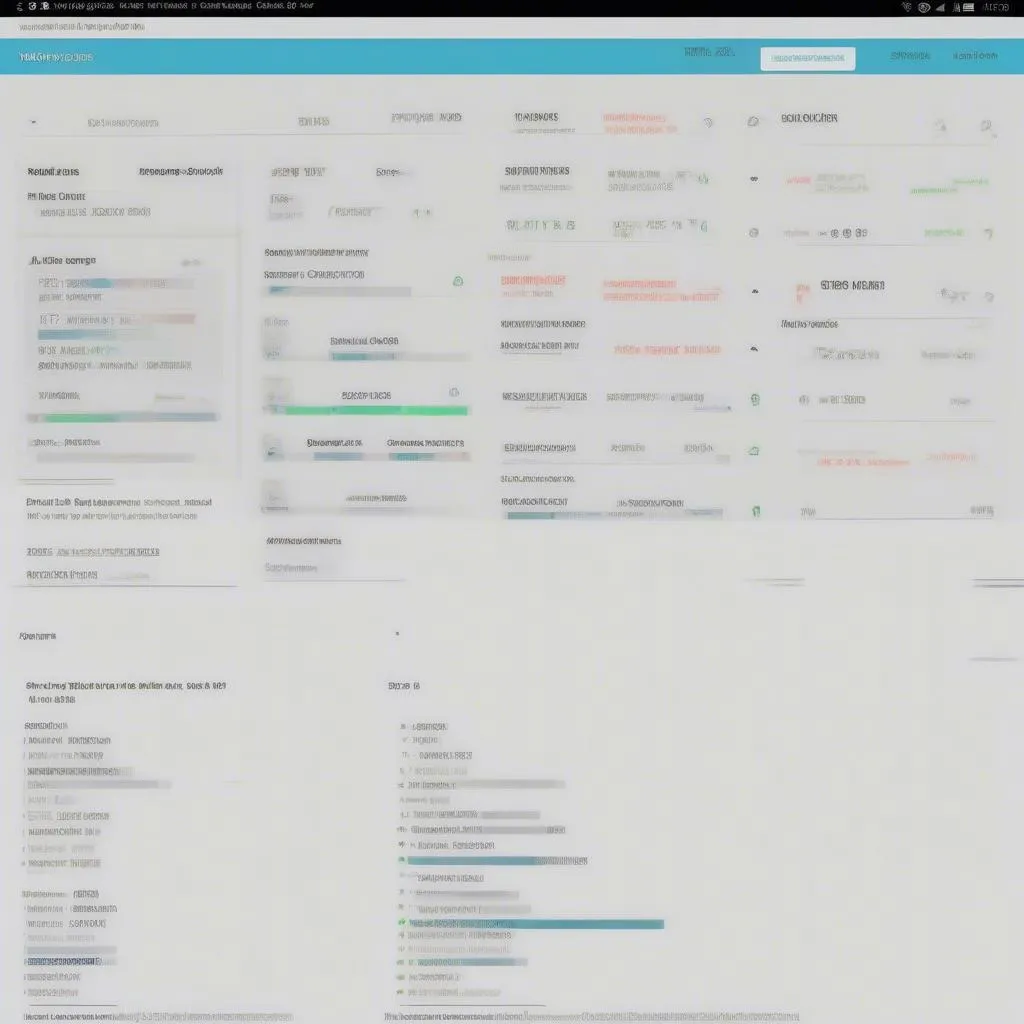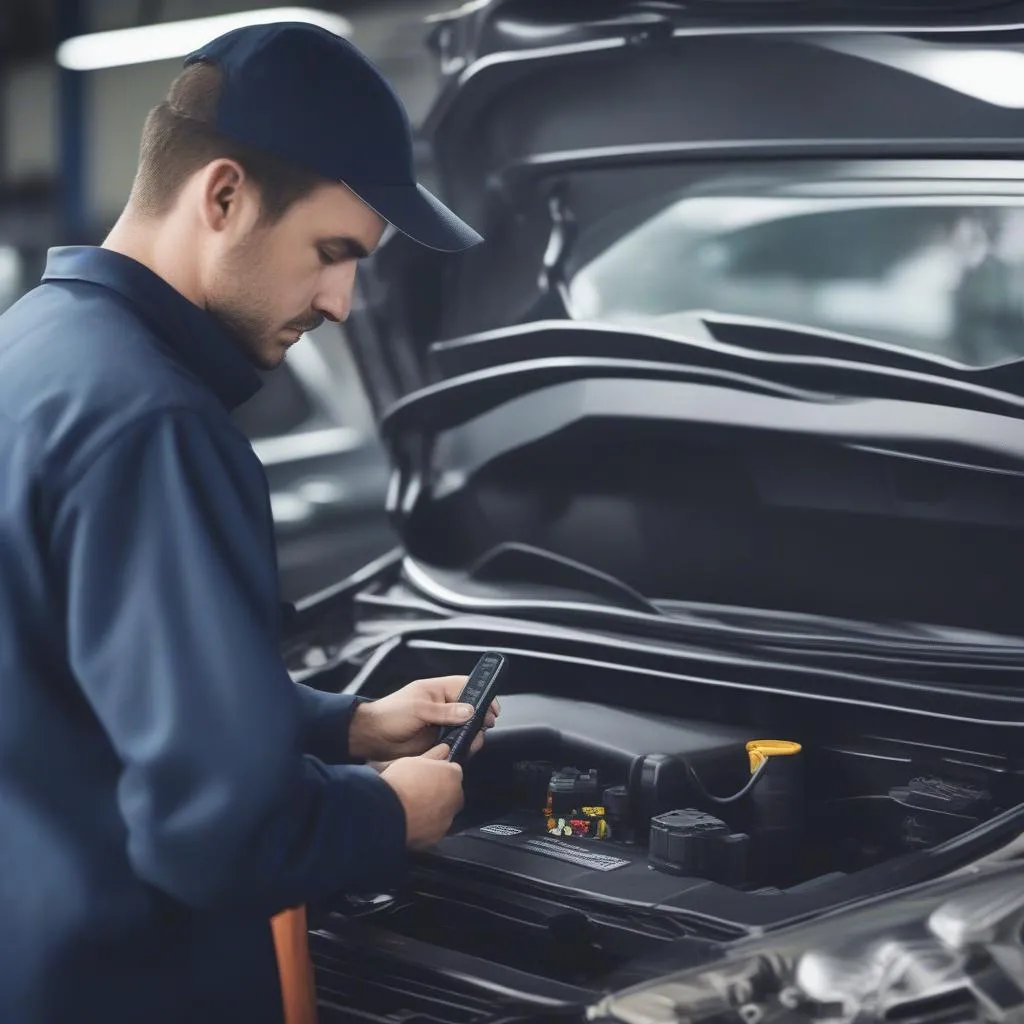Have you ever been cruising down the Autobahn, enjoying the German engineering of your Volkswagen, when suddenly, the check engine light flickers on? It’s a terrifying moment. What could it be? Is it something serious? Do you need to pull over and call a tow truck?
Fortunately, with the right tool, you can diagnose and potentially even solve many common issues yourself. That’s where the Volkswagen OBD2 scanner comes in.
What is a Volkswagen OBD2 Scanner?
An OBD2 scanner, short for “On-Board Diagnostics 2,” is a device that connects to your car’s computer system, allowing you to access and interpret diagnostic data. For Volkswagen owners, it’s a powerful tool to help you understand what’s happening under the hood, troubleshoot problems, and potentially save money on costly repairs.
From a mechanic’s perspective: An OBD2 scanner provides a window into the complex electronic systems of your Volkswagen. Think of it as a translator for the language of your car’s computer.
From a technical standpoint: The OBD2 port, located under the dash, is the key to unlocking a treasure trove of information about your car’s engine, transmission, and other vital systems. The scanner acts as a conduit, making this data accessible and readable for you.
From an economic standpoint: Diagnosing problems yourself with a scanner can help you avoid the costs of a mechanic’s visit. It allows you to determine if a simple fix is all that’s needed, or if you need to take your car to a professional.
Why Do You Need a Volkswagen OBD2 Scanner?
Let’s face it, even the most reliable cars experience issues sometimes. A Volkswagen OBD2 scanner can help you in numerous ways:
- Diagnose Check Engine Light: That dreaded check engine light can signal a wide range of problems. A scanner can pinpoint the exact code related to the issue, helping you understand the root cause.
- Identify Potential Problems: Even if the check engine light isn’t on, a scanner can detect potential issues before they become major problems.
- Reset Maintenance Lights: Many Volkswagen models have maintenance lights that need to be reset after an oil change or other service.
- View Real-Time Data: A scanner can display real-time data like engine speed, fuel pressure, and temperature, allowing you to monitor your car’s performance.
- Prepare for Emissions Tests: In many countries, you need to pass emissions tests to maintain your vehicle registration. A scanner can help you ensure your Volkswagen is ready for the test.
Choosing the Right Volkswagen OBD2 Scanner
With so many scanners on the market, choosing the right one for your Volkswagen can be overwhelming. Here are a few key factors to consider:
- Compatibility: Ensure the scanner is compatible with your Volkswagen model year and specific engine.
- Features: Consider what features are important to you. Do you need advanced diagnostics capabilities, real-time data monitoring, or code clearing?
- Ease of Use: Look for a scanner with an intuitive interface and clear instructions. You want a scanner that is easy to use, even if you’re not a mechanic.
- Price: Scanners range in price from budget-friendly options to professional-grade tools. Determine your budget and choose a scanner that provides the necessary features without breaking the bank.
Frequently Asked Questions about Volkswagen OBD2 Scanners
Here are some common questions people have about Volkswagen OBD2 scanners:
“Do I need a specific scanner for my Volkswagen?”
While many general OBD2 scanners work with most vehicles, including Volkswagens, some advanced features might require a scanner designed specifically for Volkswagen models. It depends on what you want to do with the scanner.
“Can I use a scanner to fix problems on my Volkswagen?”
While a scanner can diagnose problems, it can’t fix them directly. However, by identifying the issue, you can often find a solution or decide whether to take your car to a mechanic.
“Is it difficult to use a Volkswagen OBD2 scanner?”
Most OBD2 scanners are designed to be user-friendly, even for those without a mechanic’s background. However, it’s always a good idea to read the instructions and familiarize yourself with the scanner before using it.
“Where can I find a Volkswagen OBD2 scanner?”
You can find Volkswagen OBD2 scanners online, at auto parts stores, and at some dealerships.
Tips for Using Your Volkswagen OBD2 Scanner
- Read the instructions: Take the time to familiarize yourself with the scanner’s operation and features.
- Connect it properly: Ensure the scanner is securely connected to the OBD2 port under your dash.
- Follow the prompts: The scanner will guide you through the diagnostic process.
- Clear codes: If the scanner identifies a code, you can try clearing it and see if the problem persists.
- Interpret codes: Many online resources can help you interpret the codes and determine the cause of the problem.
- Take notes: It’s helpful to write down the code, the date, and any other relevant information for future reference.
Conclusion
A Volkswagen OBD2 scanner can be an invaluable tool for any Volkswagen owner. It empowers you to diagnose problems, potentially save money on repairs, and keep your beloved German car running smoothly.
Remember, if you’re ever unsure about anything, consult a qualified mechanic.
Do you have any other questions about Volkswagen OBD2 scanners? Leave a comment below or contact us via WhatsApp at +84767531508. We’re here to help!
 OBD2 Scanner Volkswagen
OBD2 Scanner Volkswagen
 Volkswagen OBD2 Scan Results
Volkswagen OBD2 Scan Results
 Mechanic using OBD2 scanner
Mechanic using OBD2 scanner